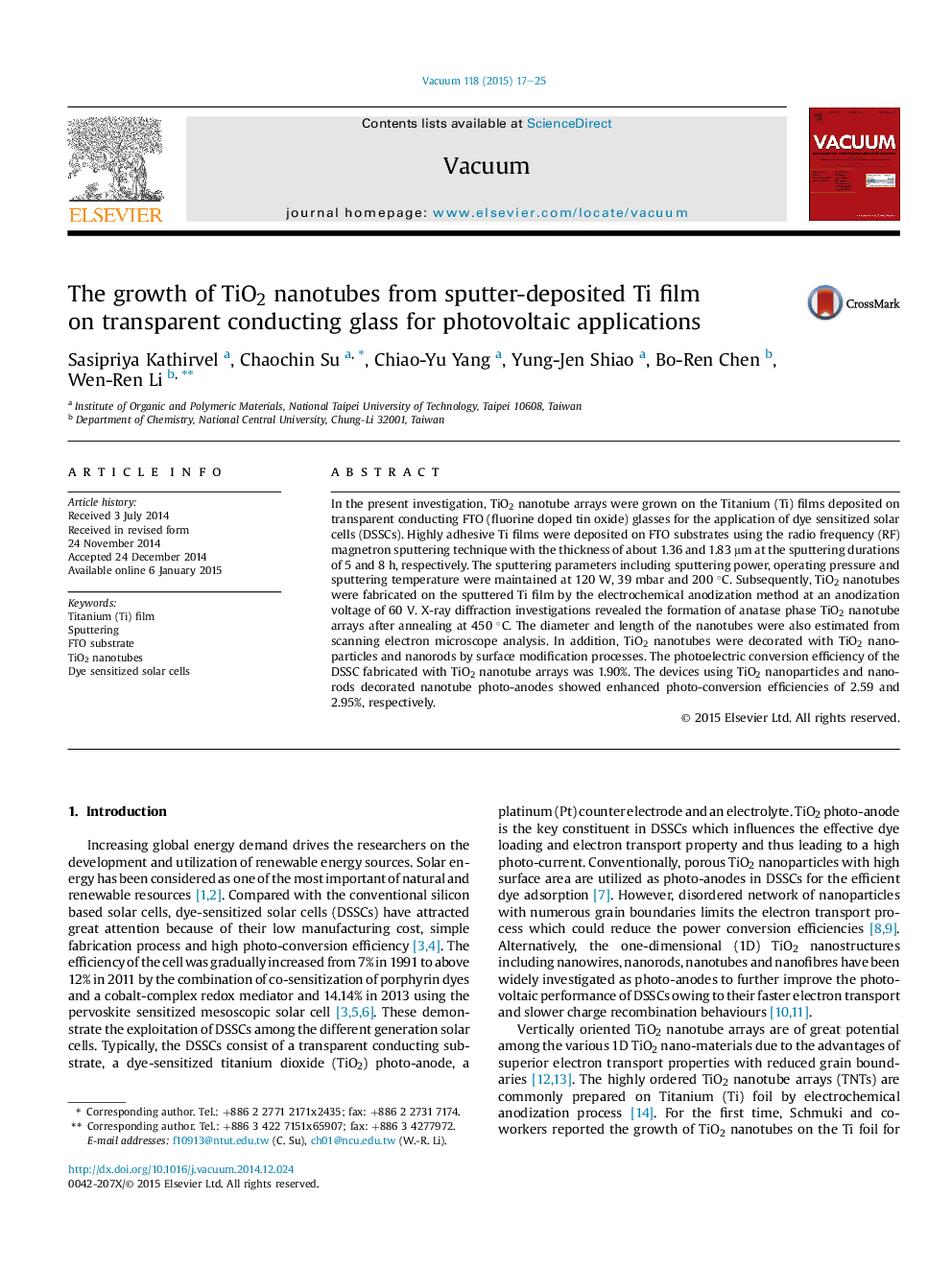| کد مقاله | کد نشریه | سال انتشار | مقاله انگلیسی | نسخه تمام متن |
|---|---|---|---|---|
| 1690170 | 1518951 | 2015 | 9 صفحه PDF | دانلود رایگان |

• Titanium films were deposited on FTO glass by RF magnetron sputtering method.
• TiO2 nanotubes were grown on the sputter deposited Ti film by anodization method.
• TiO2 nanotubes after annealing exhibits excellent transmittance.
• Decoration of TiO2 nanorods by post-treatment of TiO2 nanotubes (TNT).
• DSSC based on nanorods decorated TNT obtained an enhanced efficiency of 2.95%.
In the present investigation, TiO2 nanotube arrays were grown on the Titanium (Ti) films deposited on transparent conducting FTO (fluorine doped tin oxide) glasses for the application of dye sensitized solar cells (DSSCs). Highly adhesive Ti films were deposited on FTO substrates using the radio frequency (RF) magnetron sputtering technique with the thickness of about 1.36 and 1.83 μm at the sputtering durations of 5 and 8 h, respectively. The sputtering parameters including sputtering power, operating pressure and sputtering temperature were maintained at 120 W, 39 mbar and 200 °C. Subsequently, TiO2 nanotubes were fabricated on the sputtered Ti film by the electrochemical anodization method at an anodization voltage of 60 V. X-ray diffraction investigations revealed the formation of anatase phase TiO2 nanotube arrays after annealing at 450 °C. The diameter and length of the nanotubes were also estimated from scanning electron microscope analysis. In addition, TiO2 nanotubes were decorated with TiO2 nanoparticles and nanorods by surface modification processes. The photoelectric conversion efficiency of the DSSC fabricated with TiO2 nanotube arrays was 1.90%. The devices using TiO2 nanoparticles and nano-rods decorated nanotube photo-anodes showed enhanced photo-conversion efficiencies of 2.59 and 2.95%, respectively.
Journal: Vacuum - Volume 118, August 2015, Pages 17–25